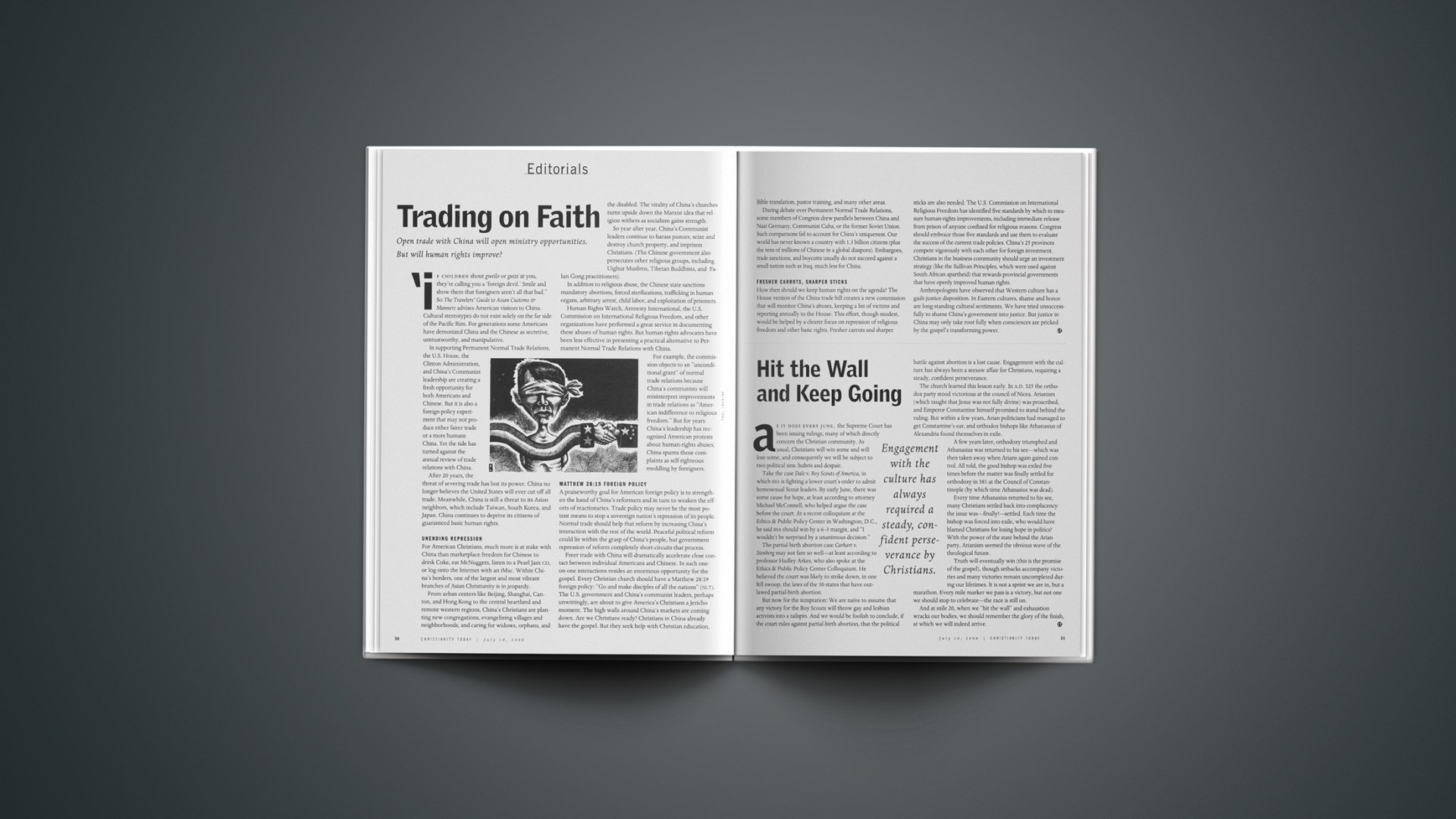As it does every June, the Supreme Court has been issuing rulings, many of which directly concern the Christian community. As usual, Christians have won some and lost some, and consequently we are subject to two political sins: hubris and despair.Take the case Dale v. Boy Scouts of America, in which BSA fought a lower court’s order to admit homosexual Scout leaders. By early June, there was some cause for hope, at least according to attorney Michael McConnell, who helped argue the case before the court. At a recent colloquium at the Ethics & Public Policy Center in Washington, D.C., he said BSA should win by a 6– 3 margin, and “I wouldn’t be surprised by a unanimous decision.” (It actually wasn’t so close, winning by a 5-4 margin.)The partial-birth abortion case Carhart v. Stenberg was not expected to fare so well—at least according to professor Hadley Arkes, who also spoke at the Ethics & Public Policy Center Colloquium. He believed the court was likely to strike down, in one fell swoop, the laws of the 30 states that have outlawed partial-birth abortion. They did, but only by another one vote difference.The court split the other two cases on religious activity yesterday as well. In the win column, it narrowly allowed public school systems to lend library books, computers and other instructional items to religious schools. In the loss column, it restricted free speech outside abortion clinics, allowing an eight-foot “buffer zone” free of literature or “oral arguments” around anyone entering a medical facility.But now for the temptation: We are naïve to assume that a for the Boy Scouts will throw gay and lesbian activists into a tailspin. And we would be foolish to conclude that the political battle against abortion is a lost cause. Engagement with the culture has always been a seesaw affair for Christians, requiring a steady, confident perseverance.The church learned this lesson early. In A.D. 325 the orthodox party stood victorious at the council of Nicea. Arianism (which taught that Jesus was not fully divine) was proscribed, and Emperor Constantine himself promised to stand behind the ruling. But within a few years, Arian politicians had managed to get Constantine’s ear, and orthodox bishops like Athanasius of Alexandria found themselves in exile.A few years later, orthodoxy triumphed and Athanasius was returned to his see—which was then taken away when Arians again gained control. All told, the good bishop was exiled five times before the matter was finally settled for orthodoxy in 381 at the Council of Constantinople (by which time Athanasius was dead).Every time Athanasius returned to his see, many Christians settled back into complacency: the issue was—finally!—settled. Each time the bishop was forced into exile, who would have blamed Christians for losing hope in politics? With the power of the state behind the Arian party, Arianism seemed the obvious wave of the theological future.Truth will eventually win (this is the promise of the gospel), though setbacks accompany victories and many victories remain uncompleted during our lifetimes. It is not a sprint we are in, but a marathon. Every mile marker we pass is a victory, but not one we should stop to celebrate—the race is still on.And at mile 20, when we “hit the wall” and exhaustion wracks our bodies, we should remember the glory of the finish, at which we will indeed arrive.
Related Elsewhere
See today’s ChristianityToday.com Weblog, which contains summaries of all four of yesterday’s decisions, as well as links to news coverage and the decisions themselves.
Copyright © 2000 Christianity Today. Click for reprint information.










